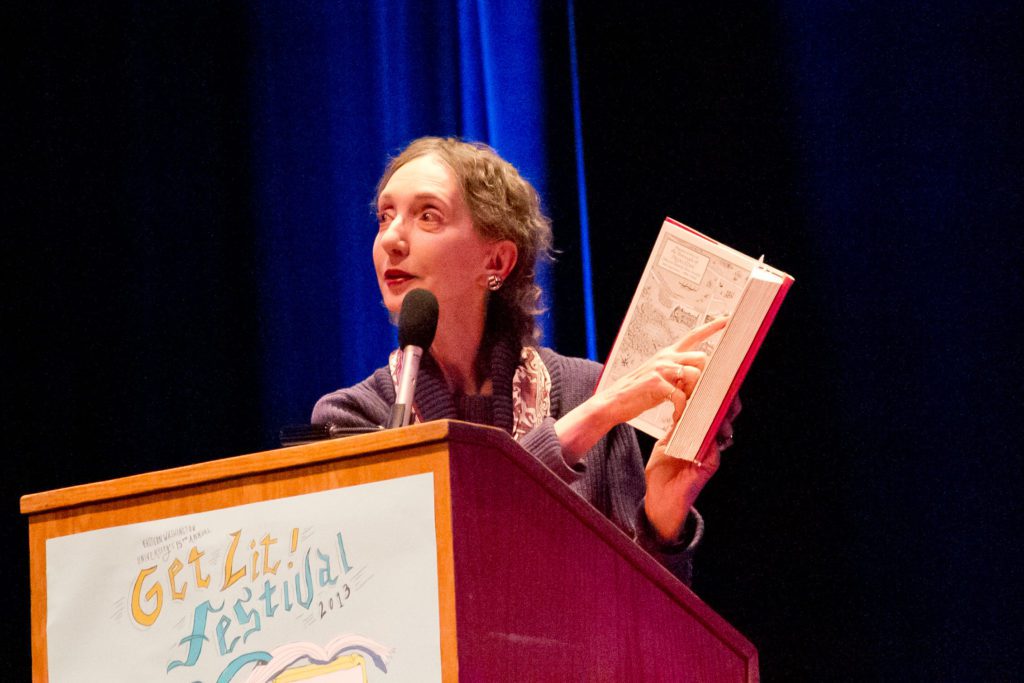Joyce Carol Oates’s Top 13 Writing Tips
You’ve likely heard of Joyce Carol Oates even if you’ve never read one of her stories. She’s published over 50 novels, won countless awards including the National Book Award, and was twice named as a finalist for the Pulitzer.
I just had the opportunity to watch Oates’s MasterClass on writing. (If you’re unfamiliar, MasterClass is a subscription program where for $180/year, you can watch high-quality courses from experts in various fields.)
Although her class focuses on writing short stories, many of the lessons are applicable to writing longer-form content as well.
Here are the top 13 lessons I learned from her MasterClass:
1. Treat every character like a paid actor
“It’s like hiring actors in a play. You have to pay them. [If] you pay five actors and you’re only using three actors, you know, you can’t afford those actors so I make them leave…you can’t distract the reader by having characters who are not important.” -Joyce Carol Oates
Oates taught writing at Princeton University for nearly 40 years. When students showed her stories that were bloated with characters, she’d ask, “What is this person doing? Why is that person there?” If the student didn’t have a compelling answer, they had to eliminate that character.
Oates says that one of the best ways to write characters out of stories is to conjoin multiple characters into a single person. Take the relevant background or traits from two or three characters and create an amalgamation that adds the same ingredients to your story.
Readers have limited energy to invest into learning about characters and caring about each character’s background and motives. Don’t overburden your readers by giving them too many people to care about.
2. Select one pivotal event
“All art is based upon this principle of synecdoche. In other words, you’re choosing and selecting. I once wrote a novel about Marilyn Monroe, and Marilyn Monroe had a number of miscarriages and she was in at least two orphanages and a number of foster homes. So when I wrote about her, I only wrote about one miscarriage, I wrote about one foster home, and one orphanage. Because if you’re writing about six foster homes or six miscarriages, you can’t really make that powerful. This art of synecdoche, or choosing or selecting — one stands for the whole — that is the principle of all art.” -Joyce Carol Oates
The goal of writing is often to explain, enliven, or entertain. Whether you’re writing fiction or nonfiction, you’ll need to make decisions about how best to explain key details, make a story come to life, and entertain your readers. And often, the best way to explain something is to leave out 90 percent of the information.
While writing the book Blonde, Oates eliminated many of the redundant details of Marilyn Monroe’s life. She instead focused on single inflection points that illustrated key concepts.
Sometimes the truest story you can tell is the stripped-down, simplified version that your reader will understand. Simple is better than complex. Partial is often better than comprehensive. Make trade-off decisions that will help your reader understand what is true about the story you’re trying to tell.
3. Decide your story speed
“You have to make a decision: how fast do you want your story to read? If it reads too fast, then it might be superficial — a person reads it in five minutes, it’s all over. Now, you want it to be a little slower so there’s more description, there’s more gravitas, you’re more inside the person’s head a little more, and then that makes it slower, so the reader is with you longer. That story might be powerful.” -Joyce Carol Oates
It’s easy to assume that every story should be a “page-turner.” But Oates says that it’s sometimes helpful to intentionally slow down a story to make it stick with your reader longer.
There’s a difference between a fast-paced beach read and a slow-burning Pulitzer Prize winner. The most critically acclaimed books are often those that have a deeper, more thoughtful message that requires processing time. Those stories aren’t quick reads, and they’re not supposed to be.
As you’re writing, decide the appropriate pacing for your story. Slow and fast are different gears on the same bike; they’ll both get you there, but you need to decide which is best for this particular journey.
4. Start with short stories
“I try to get my students always to work in short forms and work up to longer forms, and not start on the longer form immediately.” -Joyce Carol Oates
Many new writers have a mile of passion and an inch of follow-through. Rather than starting out on the long road of writing a 50,000-word novel, most would be wise to start with a shorter foray into writing.
If you’ve set your sights on writing a book, that’s great! But take a few test runs first. Get into the habit of publishing a new story every week. Or write a few short stories and submit them to magazines to gather early feedback on your writing. Practice with shorter forms, then work your way up to longer content.
5. Resist the urge to pick up your phone
“You can’t possibly work or create anything of worth if people are constantly interrupting you.” -Joyce Carol Oates
Every year of technological advancement introduces a swarm of new chirping digital devices that have the power to stand between you and your writing.
From Facebook to YouTube to Twitter to Snapchat to Instagram to TikTok, tech companies have trotted out a string of dopamine-inducing distraction tools. These tools have slowly chipped away at our ability to concentrate, prompting us to give in to the urge to pick up a device. As Oates says, “You elect to interrupt yourself.”
You need to create a writing routine that supports your ability to concentrate. This may mean putting your phone into airplane mode, writing freehand in a physical notebook rather than using a computer, or turning off wifi on your computer for a while to write in a word processing program.
6. Lock yourself in your room
“Your worst enemy [with interruptions] will have your most beloved face. It’s going to be the child you really love, it could be a dog or a cat, it’s some presence in your life that you love because that person or presence is someone you can’t say no to…The great enemy of writing isn’t your own lack of talent. It isn’t your own lack of industry. It’s being interrupted by other people.” -Joyce Carol Oates
Just like you need to resist the allure of technological distractions, you must also resist the allure of cute cats, devoted dogs, and persistent partners. The people you love have the best of intentions (and so do you), but if you want to do your best work, you’ll need to find a way to get some solo time.
“You have to at some point go into a room, you close the door and tell people not to come in…” says Oates. “Constant interruptions are the destruction of the imagination.”
7. Tell your story
“Everybody has at least one story to tell.” -Joyce Carol Oates
A common refrain of aspiring authors is “I don’t have anything to say yet. I’ll write something when I’m [older/wiser/more experienced/etc.]” But everyone has something to say. Everyone is an expert in something if you make the topic small enough.
Maybe you’re enthralled with the paintings of Vincent van Gogh, and you want to write about how his work makes you feel. Sure, thousands of writers before you have written about van Gogh. And yes, maybe many of them are better art critics than you. But what unique angle do you have on van Gogh’s work? Can you tell what it’s like to view his work from the lens of someone battling depression (just like he suffered from)? Or can you articulate why van Gogh’s paintings were the only ones that spoke to you when you visited your first museum at age 12?
You have a unique perspective to offer the world. Don’t let fear or insecurity stand in the way. Tell your story.
8. Keep a journal
“I always encourage my students to keep a journal…to keep in contact with your innermost self so this self-expression in a journal could turn into a work of art…Keeping a journal sharpens our senses. It’s like an exercise in writing.” -Joyce Carol Oates
Journaling is a great way to preserve ideas and stories for the future.
“As time goes by, when you look back over those entries that had seemed so ordinary, they become really interesting,” says Oates. “To look back 15, 17, 20 years…you can’t anticipate how important it will be when you’re doing it because you’re just caught up in the moment.”
Begin a journaling practice. Jot down events from your day, things that make you grateful, and ideas for future books and articles. Reap the compound interest of handwritten observations.
9. Find a mentor
“I wouldn’t be writing the way I write now if I hadn’t read Lewis Carroll. And I wouldn’t be writing the way I write now if I hadn’t read James Joyce…All writers have mentors.” -Joyce Carol Oates
Books are portals into the minds of the most creative, thoughtful, and wise people throughout history.
You may not be able to ask Charles Dickens how to portray the differences between social classes, but you can crack open Oliver Twist or A Christmas Carol and pull up a chair at a dining table bereft of meat. You can’t grab a drink with Ernest Hemingway to hear his top writing tips, but you can learn as much by reading his work as he could ever teach you over a martini.
“Reading is the springboard to writing,” says Oates. “What you read and with what intensity you read is going to determine probably what you write because all human beings are imitative.” So go pick a few mentors. Obsess over their work and let them teach you how to become a stronger writer.
10. Experiment with structure
“It’s very exciting to experiment with structure. I think that many stories are best told in some elliptical way or some unusual way.” -Joyce Carol Oates
Oates says that because humans process art (including writing) through our eyes, all art should be visually compelling. She offers the example of poems whose lines are structured in the shape of their topic (e.g., a tree, a key, a cat).
Rather than long blocks of uninterrupted text, consider whether you can play around with the structure of your piece through unique choices of formatting, dialogue, paragraph breaks, etc.
11. Rewrite, rewrite, rewrite
“I rewrite things countless times. I mean, I don’t have any sense of how many times. I really have no idea. It could be a hundred times, I don’t know.” -Joyce Carol Oates
As I’ve been reading advice books and watching MasterClasses from some of the world’s best authors, I’ve been impressed by the number of authors who have mentioned the power of rewriting and editing.
Athletes often say, “Offense wins games, defense wins championships.” Successful authors seem to argue that “Writing wins claps, rewriting wins book deals.” The process of rewriting separates the scribblers from superstars.
Editing and rewriting is the best way to take yourself seriously as an author. Invest the necessary hours to create a seamless experience for your readers.
12. Workshop your writing
“Without other people, your writing doesn’t have much of a resonance.” -Joyce Carol Oates
While it’s imperative to rewrite and edit your own work, it’s also important to get outside perspectives on your work.
Oates encourages writers to join workshops or writing groups to elicit feedback from others. She says that sometimes other people can see potential in your work that you don’t see, which not only gives you fresh insights about your stories but also enhances your self-confidence in your abilities.
Writing workshops aren’t for everyone, but every serious author should find some mechanism for receiving feedback.
13. Strive for one great story per year
“It should obviously be the case that you don’t have to be prolific. If you write one really brilliant short story a year, that’s great.” -Joyce Carol Oates
I love how manageable this goal is. It’s easy to see the productivity of other authors and think that in order to be successful, you must write X number of stories per day, week, or month.
Oates says to throw out those preconceptions and just focus on writing one good story. Write the best story that you can write, then rewrite it and rewrite it to make it better.
Joyce Carol Oates has written fiction, nonfiction, poetry, and plays. She’s won awards, taught college writing courses, and given MasterClasses. The tips above have helped her become the writer she is today, and they can help you blossom into the writer that you’re destined to become as well.
Happy writing!






